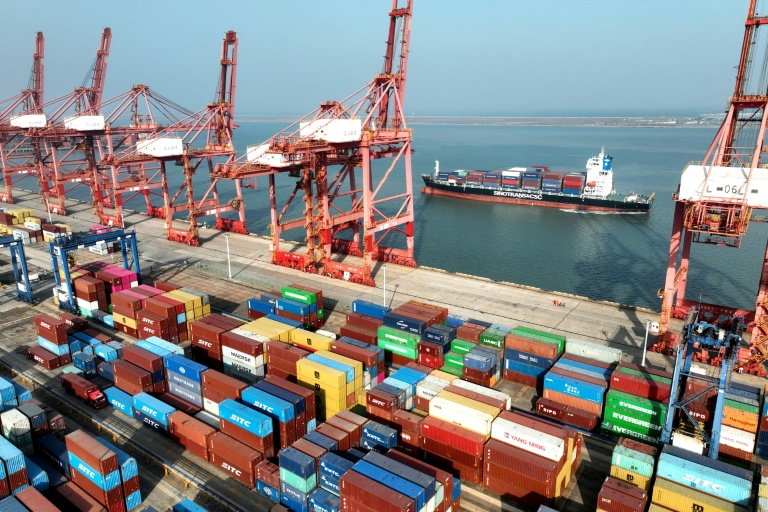Prime Minister Benjamin Netanyahu warned Iran and Hezbollah of proactive attacks, while Tehran spoke of the Jewish state’s annihilation and the region braced for the possibility of a second direct confrontation between the two arch-foes.
“We are prepared both defensively and offensively,” Prime Minister Benjamin Netanyahu stated during a visit Wednesday to the IDF induction base at Tel Hashomer.
“I know that the citizens of Israel are concerned, and I ask one thing of you: Be patient and level-headed,” he said.“We are striking our enemies and are determined to defend ourselves.”
The prime minister spoke with inductees at the base amid a tense week as Israel braced for potential reprisal attacks by Iran and its proxy groups, including Hezbollah, which has already been battling the IDF along the country’s northern border with Lebanon for close to 11 months.
White House Press Secretary Katherine Jean-Pierre told reporters Wednesday that American officials were urging de-escalation and that “is our focus.”
US advise caution, deescalation
US National Security Communications Adviser John Kirby said, “We’re working really, really hard, with intense diplomacy, to try to avoid an escalation.”
US Secretary of State Antony Blinken told reporters in Maryland on Tuesday that American officials had emphasized de-escalation in its intense diplomacy with allies and had commented that message “directly to Iran” as well as to Israel.
US State Department spokesperson Matthew Miller said, “We have always said that when we need to send a message to Iran, we have the ability to do so.”
Chief Commander of the Iranian Army Abdolrahim Mousavi did not sound consolatory when he spoke of Israel’s pending destruction on Wednesday.
“The Zionist regime will soon receive a strong and definite response, and there is no doubt about it,” Mousavi reportedly said, according to IRNA and Tasnim. “It is clear that they themselves have realized the speed of their own destruction, and by doing so, they want to save themselves from the quagmire, but they definitely cannot save themselves from annihilation.”
Iran’s new president, Masoud Pezeshkian, however, asked Supreme Leader Ali Khamenei to refrain from attacking Israel, according to Iran International.
French President Emmanuel Macron told Pezeshkian in a phone call on Wednesday that he must do everything in his power to avoid escalation in the region and that the cycle of retaliation must stop, the Elysee Palace said.
Macron said Iran has to call on the “destabilizing players it supports” to exercise the utmost restraint to avoid a conflagration.
Egypt: No planes over Iranian airspace
Egypt instructed all of its airlines to avoid Iranian airspace for a three-hour period in the early morning on Thursday. The NOTAM, a safety notice provided to pilots on Wednesday, said the instruction would be in effect from 0100 to 0400 GMT. It provided no further details as to why the notice was issued.
An Egyptian official was quoted by the state-affiliated Al Qahera News TV as saying that the Iranian authorities said to avoid flying in Iranian airspace because of “military exercises.”
“Based on a report from Iranian authorities to all civil aviation companies, flights over Iranian airspace are to be avoided,” the unnamed official was quoted as saying.
Many airlines are revising their schedules to avoid Iranian and Lebanese airspace while also calling off flights to Israel and Lebanon as many fear a possible broader conflict after the killing of senior members of Hamas and Hezbollah. On Sunday, Jordanian authorities asked all airlines landing at its airports to carry 45 minutes’ worth of extra fuel.
US provides defense to Israel
US Secretary of State Lloyd Austin said at a press conference in Maryland that he had sent additional warships to the Middle East capable of defending against missiles amid an increase in tensions between Iran and Israel.
“We’ve adjusted our military posture to strengthen our force protection,” Austin said.
This will “reinforce our ironclad commitment to the offense of Israel” and allow the US to “remain prepared to respond to any contingency.”
“To maintain our carrier strike group presence in the Middle East, I’ve ordered the USS Abraham Lincoln to replace the USS Theodore Roosevelt later this month,” he said.
“I’ve also ordered more cruisers and destroyers capable of ballistic missile defense to the region,” Austin stressed.
Another fighter squadron has also been deployed to the Middle East “to reinforce our defensive air support capabilities here,” he added.
“These posture adjustments add to our already broad range of capabilities in the region” that can be deployed on “short notice to meet evolving threats to our security, our partners or our interests.”
Austin stressed that the US “remains intensely focused on de-escalating tensions in the region,” he said.
Israel has been engaged in a multi-front war with Iranian proxies for almost a year, including Hamas in Gaza, Hezbollah in Lebanon, and the Houthis in Yemen.
Tensions increased last week in the aftermath of the twin assassinations of Hezbollah commander Fuad Shukr and Hamas military leader Ismail Haniyeh. Israel has accepted responsibility for Shukr’s killing but not Haniyeh’s.
Reuters and Jerusalem Post Staff contributed to this report.







